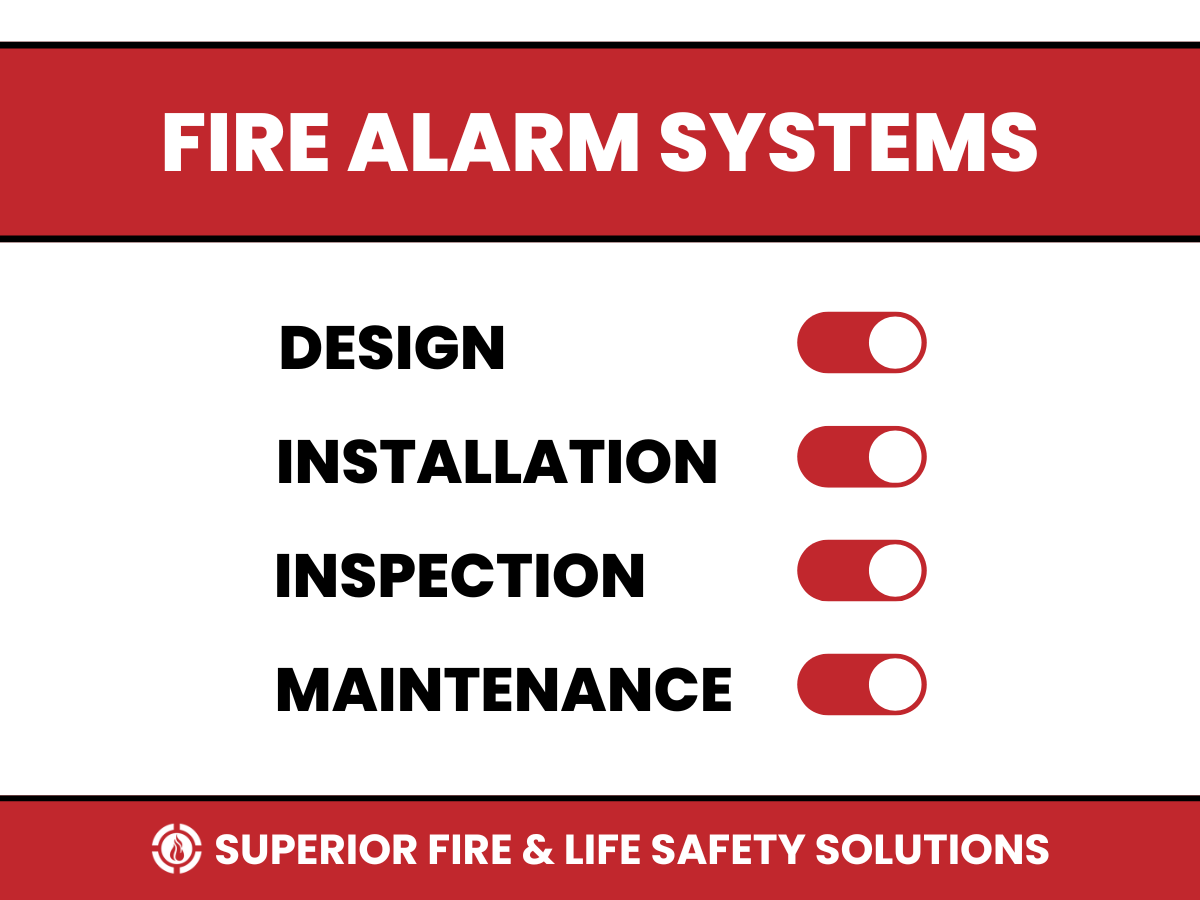What are the types of fire alarm systems, and how do you know which is right for your facility? Whether you manage a data center, healthcare facility, or industrial site, understanding the basics of fire alarm systems is essential for protecting property, ensuring occupant safety, and complying with local fire codes.
In this guide, we’ll walk through how fire alarm systems work, the main types available, and how professional planning can help ensure your system performs when it matters most.
What Is a Commercial Fire Alarm System?
A commercial fire alarm system is a network of devices that detects smoke, heat, or flames and alerts building occupants and emergency responders. These systems are designed to detect fire at its earliest stage and give people enough time to evacuate safely.
According to NFPA 72: National Fire Alarm and Signaling Code, a code-compliant system must include:
- Initiating devices (smoke detectors, heat detectors, pull stations)
- Notification appliances (strobes, horns, speakers)
- A control panel to manage the system
- Backup power
- Communication links to monitoring centers or first responders
What Are the Types of Fire Alarm Systems?
There are four primary types of fire alarm systems used in commercial properties. Each is designed to meet specific building needs, complexity, and risk levels.
Conventional Fire Alarm Systems
These are zone-based systems where devices are wired to specific zones in the building. If an alarm goes off, the panel shows the zone where the issue originated—but not the exact device.
- Best for: Small to mid-sized buildings
- Pros: Cost-effective and easy to install
- Cons: Limited precision in identifying alarm location
Addressable Fire Alarm Systems
Every device is assigned a distinct address, enabling the control panel to determine the precise location of the trigger accurately. These systems are more complex and highly customizable.
- Best for: Large buildings or facilities with complex layouts
- Pros: High precision, better diagnostics, scalable
- Cons: Higher upfront cost
Intelligent Fire Alarm Systems
These systems are a more advanced version of addressable systems. They can evaluate inputs from devices and reduce false alarms by assessing whether conditions indicate fire.
- Best for: Facilities that require high reliability and minimal false alarms (e.g., hospitals, data centers)
- Pros: Smarter detection, remote diagnostics, reduced maintenance
- Cons: Requires advanced programming and support
Wireless Fire Alarm Systems
Instead of hardwiring each device, wireless systems use radio communication. They are ideal for buildings where running cable is impractical or too expensive.
- Best for: Historic buildings, temporary setups, retrofits
- Pros: Fast installation, flexible, scalable
- Cons: May require more maintenance and battery checks
Each of these system types must comply with NFPA 72 standards and local Authority Having Jurisdiction (AHJ) requirements.
Monitoring and Notification: An Essential Component
In many commercial settings, fire alarm systems must be monitored 24/7 by a UL-listed central station. At DynaFire, we provide this through DynaNet, our wireless mesh monitoring technology, which offers faster and more reliable communication than outdated cellular systems.
A monitored system ensures that alarms reach first responders, even when no one is on site—an essential layer of protection for high-occupancy or high-risk properties.
Fire Alarm System Design Is Not One-Size-Fits-All
Choosing the right type of fire alarm system depends on:
- Building size and layout
- Occupancy type and risk level
- Budget and future scalability needs
- Code compliance and insurance requirements
At DynaFire, we design custom systems tailored to the unique needs of your facility. Our NICET-certified professionals ensure that each installation meets NFPA standards and local codes, so you’re protected and inspection-ready from the start.
Let DynaFire Help You Choose the Right System
What are the types of fire alarm systems that would work best for your facility? The answer depends on your building and its risk profile. DynaFire offers comprehensive services, from choosing and designing systems to installation and continuous support, delivering the expertise and cutting-edge technology necessary to safeguard your business.
Contact us today to schedule a consultation or learn more about commercial fire alarm systems that deliver code-compliant, future-proof safety.






